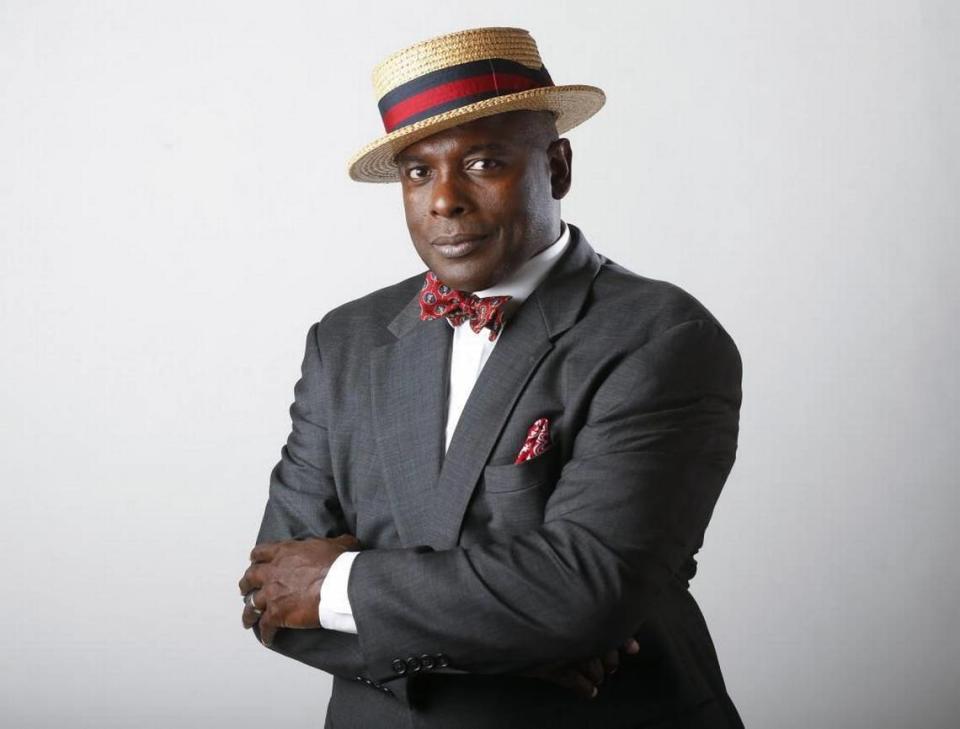Funeral processions: Maybe Willy Loman’s wife was right about paying respect
Stop me if you’ve heard this one before.
Or, just slow down and pull over to the side of the road.
Recently while driving down Roxboro Street in Durham, I encountered the unmistakable signs of a funeral procession approaching from the other direction — a looooooong stream of slow-moving cars all with their headlights on in the middle of a bright, sunny day.
I could’ve kept on truckin’ by making an immediate right turn to avoid the procession and save a minute or two.
Instead, I reflexively did what any Southern boy raised by Miss Minnie Reddick would’ve done: I pulled over to the side of the road, turned down the car radio and let the procession roll on past.

Only one other car did the same. The others kept on motorvatin’, oblivious to the human spectacle playing out in the oncoming lane.
I scolded those drivers silently - very silently lest I, myself, end up at the head of that oncoming lane for antagonizing the wrong person. But I also wondered what the law said. Turns out you don’t have to stop.
Too bad.
I contacted Randall Packard, a Durham cop shop spokesman, for the definitive word on funeral procession etiquette in the state.
Packard referred me to N.C. General Statute 20-157.1, which states “The operator of a vehicle proceeding in the opposite direction as a funeral procession may yield to the funeral procession...”
May?
The statute further states that you should, if you desire to show respect, reduce your speed or stop completely off the roadway so that motorists behind you can continue past without leaving their lane. Mustn’t inconvenience anyone else while showing respect, old bean.
In “Death of a Salesman,” as Willy Loman loses his tenuous grasp on reality and slides inexorably toward the grave, his wife yells at their disrespectful son: “His name was never in the paper. He’s not the finest character that ever lived. But he’s a human being.... He’s not to be allowed to fall in his grave like an old dog. Attention, attention must finally be paid to such a person.”
In our house growing up, attention was paid. We didn’t even think of turning on the television when someone on our street had died. My grandmother didn’t allow it.
Mr. Fred Spenser, who lived right across the street, died right when “The Monkees” and “Batman” were can’t miss TV.
I’m sure that for a few days I was left out of schoolyard debates on whether The Monkees’ song “Valleri” was really about our fifth-grade classmate with that name or how Batman had foiled The Joker’s fiendish plot.
That was a small price to pay to show respect for Mr. Fred and his widow, Miss Mary.
Twenty-nine years ago, when I came back to the Triangle to look for a crib after taking a job with the N&O, I attended the funeral of a cousin in Rockingham who’d died in less-than-heroic circumstances that aren’t important now. I brought a friend from Indiana with me. As we drove to the graveyard, she asked incredulously “Why are all those people pulled over to the side of the road?”
I looked at her equally incredulously, because it had never occurred to me that everyone everywhere didn’t pull over to the side of the road for a passing funeral. She was flabbergasted to see police officers standing respectfully along the side of the road with their hats off and their hands over their hearts.
That sight made me even happier to be back in a place where respect is shown to the dead, regardless of the circumstances.
Perhaps it’s impractical to expect everyone to take notice every time someone dies and is borne to the graveyard.
Then again, maybe it’s not. Maybe slowing down — nay, stopping — for a minute to acknowledge the death of a fellow human being isn’t too much to ask. Maybe attention should be paid.
Barry Saunders is a member of the Editorial Board and founder of thesaundersreport.com.

 Yahoo Movies
Yahoo Movies 
